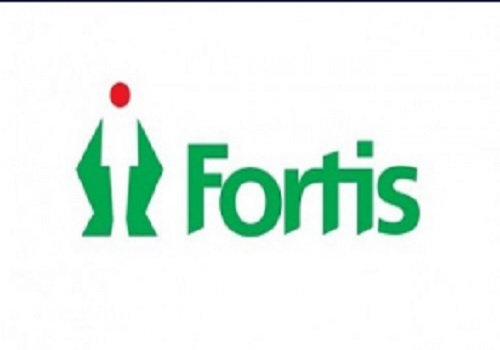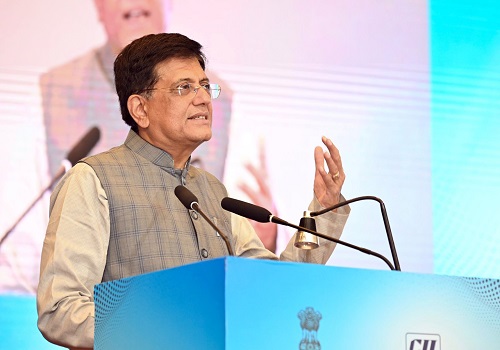Markets make rebound after yesterday’s crash; Nifty reclaim 14,500 mark

Markets make rebound after yesterday’s crash; Nifty reclaim 14,500 mark
Recouping yesterday’s losses, Indian equity benchmarks ended the Tuesday’s trade with a gain of around one and a half percentage points with Sensex and Nifty settling above their crucial 48,500 and 14,500 mark respectively. Markets started the day in green as traders took note of report that Reserve Bank of India (RBI) governor Shaktikanta Das notified bankers to remain watchful of the evolving pandemic situation and also ensure credit flow to different sectors, including to stressed sectors, small borrowers and retail. Domestic sentiments were positive, amid reports that Indians are among the most optimistic globally in terms of their expectations for a return to pre-COVID normal, with over 70 per cent expecting it to happen in less than a year. Importantly, the survey was conducted just before the COVID-19 pandemic was seen moving towards a new peak in India and some other countries.
Markets extended rally in second half to end near intraday high levels, as traders took some encouragement with report that the Ministry of Finance in its latest report has showed that provisional net indirect tax collections (GST & Non-GST) for the Financial Year 2020-21 (FY21) grew more than 12% compared to actual Revenue Receipts in FY 2019-20. Traders overlooked weak macro-economic data. Industrial production declined for the second month in a row in February at a faster rate of 3.6 per cent than 0.9 per cent in the previous month. The retail price inflation rate rose to a four-month high of 5.52 per cent in March due to upward movement in core as well as food rates, barring vegetables and cereals.
Positive cues from global front too provided support to local markets with European markets trading mostly in green as investors monitor key economic data and the beginning of corporate earnings season. Asian markets ended mixed on Tuesday, even after Indonesia retail sales grew in March as demand continued to improve amid favorable weather. The results of a survey by Bank Indonesia showed that retail sales rose 2.9 percent month-on-month in March, after a 2.7 percent decline in February. In January, sales fell 4.3 percent. The latest growth was due to increasing public demand amid favorable weather. Sales of other goods, clothing sub-group and culture and recreational goods increased in March.
Back home, sugar stocks remained in focus as trade body AISTA said sugar mills have exported 2.49 million tonnes of the sweetener so far in the ongoing 2020-21 marketing year ending September, with maximum shipments to Indonesia. Steel stocks remained on buyers radar on report that steel exports touched a record high in FY21, saving the day for companies, as domestic consumption dragged due to Covid-related disruptions in the first half of the year.
Finally, the BSE Sensex surged 660.68 points or 1.38% to 48544.06, while the CNX Nifty was up by 194.00 points or 1.36% to 14,504.80.
The BSE Sensex touched high and low of 48627.43 and 47775.32, respectively and there 22 stocks advancing against 8 stocks declining on the index.
The broader indices ended in green; the BSE Mid cap index jumped 1.46%, while Small cap index was up by 1.21%.
The top gaining sectoral indices on the BSE were Auto up by 4.30%, Metal up by 3.51%, Bankex up by 3.20%, PSU up by 3.19% and Realty was up by 2.70%, while IT down by 2.63%, TECK down by 2.05% and Healthcare down by 0.67% were the few losing indices on BSE.
The top gainers on the Sensex were Mahindra & Mahindra up by 8.02%, Bajaj Finserv up by 6.43%, Bajaj Finance up by 4.75%, Maruti Suzuki up by 4.60% and Indusind Bank up by 4.29%. On the flip side, TCS down by 4.21%, Dr. Reddys Lab down by 4.18%, Tech Mahindra down by 3.54%, HCL Tech down by 2.70% and Infosys down by 1.91% were the top losers.
Meanwhile, Reserve Bank of India (RBI) Governor Shaktikanta Das has told bank chiefs to ensure business continuity and credit flows to underpin the nascent economic recovery even as an alarming second wave of infections is raising afresh disruption risks in Asia’s third-biggest economy. He stressed the need to raise capital for buttressing balance sheets and creating buffers against possible business losses.
In the customary post-monetary policy interaction with top bank executives, Governor discussed the liquidity scenario and monetary transmission and urged bankers to grow lending to MSMEs, retail as well as the stressed sectors. He took note of credit growth reported by individual banks and their asset quality and capital adequacy parameters.
Das emphasised the need for banks to maintain a close vigil on the payments and other IT systems operated by banks and fortifying those for enhanced efficiency and resilience so as to offer seamless and uninterrupted customer service.
The CNX Nifty traded in a range of 14274.90 and 14528.90 and there were 37 stocks advancing against 13 stocks declining on the index.
The top gainers on Nifty were Mahindra & Mahindra up by 7.95%, Bajaj Finserv up by 7.02%, Tata Motors up by 5.69%, Bajaj Finance up by 4.83% and Maruti Suzuki up by 4.53%. On the flip side, Dr. Reddys Lab down by 4.40%, TCS down by 4.39%, Tech Mahindra down by 3.65%, Wipro down by 3.16% and HCL Tech down by 2.58% were the top losers.
European markets were trading mostly in green, France’s CAC increased 20.45 points or 0.33% to 6,182.13 and Germany’s DAX was up by 38.36 points or 0.25% to 15,253.36. On the flip side, UK’s FTSE 100 was down by 3.21 points or 0.05% to 6,885.91.
Asian markets ended mixed on Tuesday amid rising hopes of faster economic recovery globally. Besides, optimism over corporate earnings too supported market sentiments. Japanese shares rose as investors cheered robust earnings from glass product companies and department store operators. Moreover, China’s imports and exports continued their strong rebound in March. Exports increased 30.6 percent year-on-year in March, slower than the forecast of 35.5 percent. Meanwhile, imports advanced 38.1 percent annually, much faster than the expected growth of 23.3 percent. Consequently, the trade surplus fell to $13.8 billion and well below expectations of $52.05 billion. Besides, Federal Reserve chairman Jerome Powell said it’s highly unlikely that they would raise rates this year in an interview with CBS. Powell also commented that vaccinations and federal stimulus have substantially brightened the economic outlook. Meanwhile, Chinese shares settled down because of worries about further liquidity tightening.
Above views are of the author and not of the website kindly read disclaimer




















